 Petzlover
Petzlover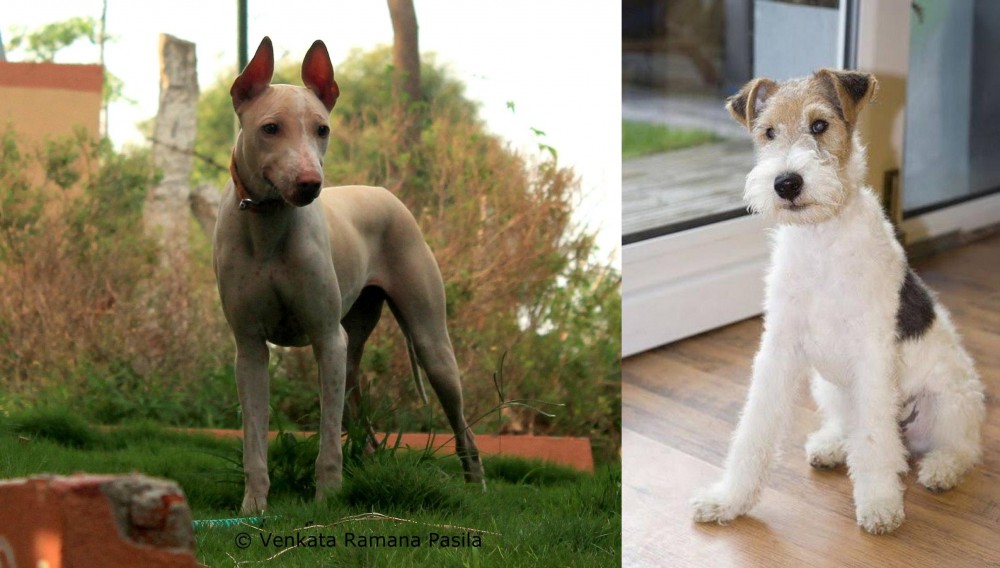 Jonangi is originated from India but Wire Fox Terrier is originated from United Kingdom. Jonangi may grow 14 cm / 6 inches higher than Wire Fox Terrier. Jonangi may weigh 12 kg / 27 pounds more than Wire Fox Terrier. Both Jonangi and Wire Fox Terrier has almost same life span. Both Jonangi and Wire Fox Terrier has almost same litter size. Jonangi requires Low Maintenance. But Wire Fox Terrier requires Moderate Maintenance
Jonangi is originated from India but Wire Fox Terrier is originated from United Kingdom. Jonangi may grow 14 cm / 6 inches higher than Wire Fox Terrier. Jonangi may weigh 12 kg / 27 pounds more than Wire Fox Terrier. Both Jonangi and Wire Fox Terrier has almost same life span. Both Jonangi and Wire Fox Terrier has almost same litter size. Jonangi requires Low Maintenance. But Wire Fox Terrier requires Moderate Maintenance
 The Jonangi, known also as the Jagilam or Kolleti Jagilam is an Indian breed of dog which has always been used for hunting and herding.
The Jonangi, known also as the Jagilam or Kolleti Jagilam is an Indian breed of dog which has always been used for hunting and herding.
The dog isn’t seen abundantly in India and it isn’t recognized by any major kennel clubs in India. It isn’t recognized as a pure” breed and there is also concern that the dog is reaching extinction.
Because of interbreeding with other dogs, there is quite a bit of variation in the Jonangi breed.
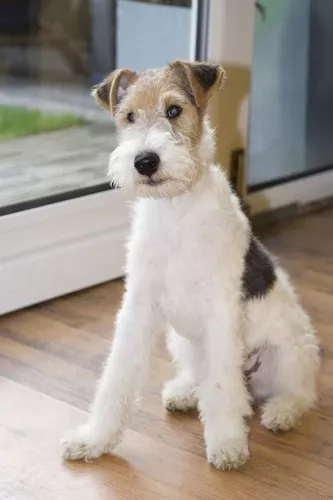 The wire fox terrier was developed in England by fox hunting enthusiasts. They wanted a feisty dog that could chase foxes down their burrows.
The wire fox terrier was developed in England by fox hunting enthusiasts. They wanted a feisty dog that could chase foxes down their burrows.
It is thought that the dog descended from the rough-coated black and tan working terriers of Wales.
The dog wasn’t popular as a pet until the 1930s when its appearance in certain films gave it a popularity-boost.
 The Jonangi is a medium sized dog that stands between 43 – 53cm in height and weighs between 12 and 21kg. He is lean and muscular. Because of interbreeding with the Jonangi dog, the colors of their coats can vary and be anything from fawn, white, tan, black, bi-colored or even brindle. The coat is very short and fine which helps it cope with the extreme heat of the environment.
The Jonangi is a medium sized dog that stands between 43 – 53cm in height and weighs between 12 and 21kg. He is lean and muscular. Because of interbreeding with the Jonangi dog, the colors of their coats can vary and be anything from fawn, white, tan, black, bi-colored or even brindle. The coat is very short and fine which helps it cope with the extreme heat of the environment.
The ears are erect, the forehead is often wrinkled and the long tail is held out straight or it hangs down low. The ears are fairly short and are somewhat floppy.
The Jonangi is capable of being a true family pet, becoming loyal and devoted to his human family. This isn't a particularly intelligent dog but they're even tempered, fun loving, social and easy to please.
You'll find them getting on well with other pets in the home and children too. An interesting aspect with this dog is that he seems to like digging a hole and lying in it, even preferring this to the regular dog beds you get.
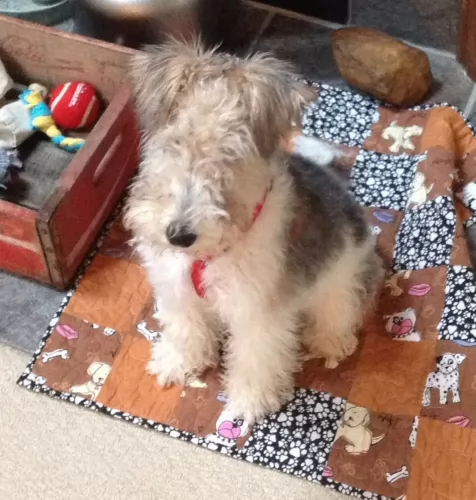 The Wire Fox Terrier is a sturdy, medium-sized dog that weighs between 7 and 9kg and stands between 35 and 39cm at the withers.
The Wire Fox Terrier is a sturdy, medium-sized dog that weighs between 7 and 9kg and stands between 35 and 39cm at the withers.
The dog’s double coat is essentially white with brown or tan markings and can be medium length and wiry, tending to be curly too.
He is a light shedder. The face is long, without much shape and eyes appear to be fairly close together. The ears are fairly small and they fold forward toward the cheeks. The tail is docked and is held high.
This really is an intelligent dog and can’t tolerate being bored. It’s essentially a companion dog too and doesn't want to be separated from his owners for too long.
As a companion dog he is going to want a lot of attention. They’re independent and strong-willed and will benefit from training and socialization.
They are great around children but they do need to be supervised as they are inclined to nip, especially when highly excited. They also bark quite a bit and the owner might have to do something to stop this yapping, especially when the dog is bored.
 Life with a Jonangi is easy going as these aren’t finicky dogs – they’re low maintenance, easy going, fairly healthy dogs that want to please you and just be your pet.
Life with a Jonangi is easy going as these aren’t finicky dogs – they’re low maintenance, easy going, fairly healthy dogs that want to please you and just be your pet.
They make excellent companions, being loving and loyal to their human families and getting on well with other dogs and children in the home.
There are those who are trying to revive the breed, and that is a good thing as these are good natured family pets that will be a positive addition to any home.
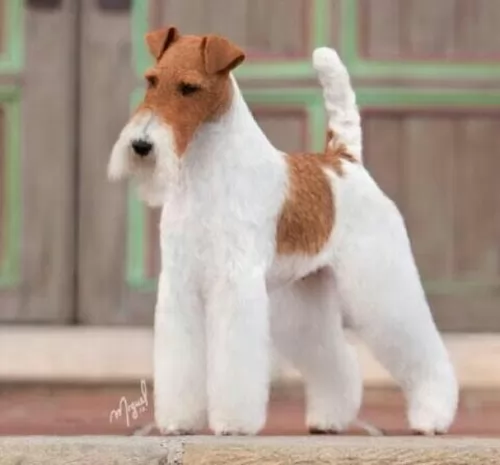 The Wire Fox Terrier is such a canine friend, ready to be with you no matter what you’re doing. They are social dogs and love being involved with their human companions.
The Wire Fox Terrier is such a canine friend, ready to be with you no matter what you’re doing. They are social dogs and love being involved with their human companions.
He is independent but still social and enthusiastic and you can describe him as the ideal family dog.
He is a bundle of energy, and when you bring him into your home, you’re going to get a family member who is playful, joyful, loving and loyal – your very best friend.
 This dog is a robust breed, used to living under difficult circumstances. You won't find many inherited diseases with him, but still it pays to know about some of the more common dog illnesses that he might face.
This dog is a robust breed, used to living under difficult circumstances. You won't find many inherited diseases with him, but still it pays to know about some of the more common dog illnesses that he might face.
With any dog, the joints can take quite a pounding which can lead to injuries. You may notice your dog doing less and having difficulty with common activities. Your dog may even have lameness. Your vet will try to avoid surgery and look at things such as diet and weight management. There are also medications, anti-inflammatories and pain relievers.
Ear infections are common with dogs and can be caused by allergies, ear mites and bacteria in the ear canal. Your Jonangi may be tilting his head or shaking it, he may be constantly scratching his ear, he may even have lack of balance and an unpleasant odor coming from his ear because of a discharge. Take him to the vet as soon as you think he has an ear infection.
This problem which affects a dog’s lower urinary system can be totally debilitating for your dog. There are many problems which can cause this problem in your pet and which can lead to health conditions such as incontinence.
Older dogs and those with diabetes are more prone to urinary tract problems. Your dog will strain or yelp with discomfort when trying to pass urine. The urine may be very cloudy or even have blood in it and there may be dribbling of urine too. Other signs can be vomiting, lethargy, back pain, weight loss and change in appetite. See your veterinarian for immediate medical attention. It is considered a medical emergency.
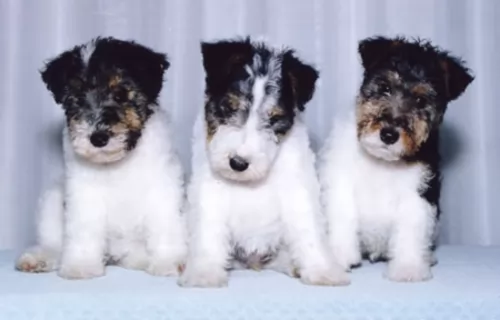 These are healthy dogs, and if you get your dog from a responsible breeder, he will have been checked for health conditions such as cataracts, hip dysplasia, and luxating patellas.
These are healthy dogs, and if you get your dog from a responsible breeder, he will have been checked for health conditions such as cataracts, hip dysplasia, and luxating patellas.
Cataracts are a problem with the lens of the eye. The lens focuses light and it should be crystal clear. A cataract obscures vision. Sometimes the cataract can be very small but other times it can grow to the size of the lens and then it can cause blindness.
Most times, dogs with cataracts can still see, and even though a dog may experience some confusion with a cataract, they don’t hurt the dog. They don’t go away on their own and will need to be removed surgically. If you see your dog has a cataract, consult your vet to get their opinion on the matter.
Your dog may be licking and scratching a lot and it may just be that your dog has a frustrating and irritating skin problem. This itching isn’t a disease but rather a cause of some disease.
There could be so many things that are causing your pet to scratch and it could be a skin disease, parasites or allergies. It can be terrible seeing the frustration it causes your pet and he will certainly need to see the vet.
 With commercially manufactured dog food, there are companies that make quality foods that are formulated for certain conditions such as joint health. They have additives in them such as fish oils which decrease inflammation. Always look for a food that is appropriate for your dog’s age and energy levels.
With commercially manufactured dog food, there are companies that make quality foods that are formulated for certain conditions such as joint health. They have additives in them such as fish oils which decrease inflammation. Always look for a food that is appropriate for your dog’s age and energy levels.
Add in your own home-made food to his dry kibble such as cooked chicken, brown rice and pasta as well as vegetables and also try to include some raw meat into his kibble from time to time. Fresh, cool water should be available to him night and day.
With his short coat, the dog is looked upon as low maintenance. Brush him a couple of times a week to make sure the coat remains shiny. Check his eyes, ears and teeth for infections.
This dog is lean, energetic and agile. With his long strides, he likes to run over terrain sniffing and following scents. He is more suited to life in the countryside than to the city. Make sure you have a reasonable sized garden for him and meet his exercise needs by taking him on walks and playing ball and fetch games with him.
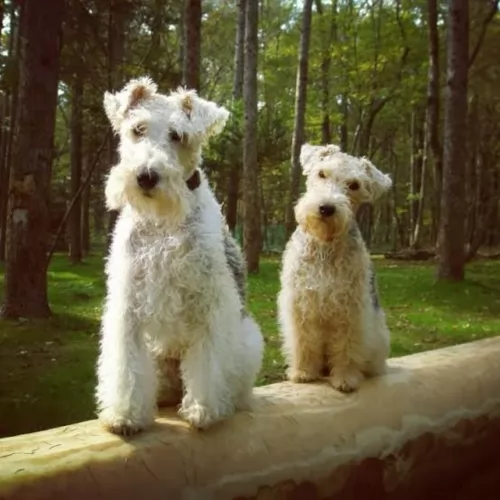 This dog will need to be brushed regularly. Some people hand-strip their dogs. Most people prefer just to take their pets to a professional groomer to have them professionally clipped. The groomers will simultaneously clip his nails, clean the inside of his ears and also clean his teeth.
This dog will need to be brushed regularly. Some people hand-strip their dogs. Most people prefer just to take their pets to a professional groomer to have them professionally clipped. The groomers will simultaneously clip his nails, clean the inside of his ears and also clean his teeth.
The Wire Fox Terrier will expect you to supply him with high-quality dog food if you opt to use commercially manufactured dog food. These foods can be wonderfully convenient but you want the food to be packed with natural ingredients and be high in vitamins and minerals.
Any diet should also be appropriate to the dog’s age, his size, and his activity levels. Some homemade foods can also be a treat but this needs to be simple with no heavy spicing. Things such as boiled chicken, brown rice and vegetables can be an excellent choice.